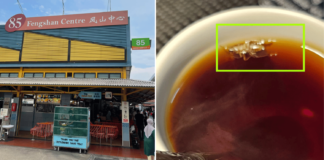Employers to implement process for flexible work arrangements
On Monday (15 April), the Singapore Government accepted 10 guidelines recommended by the Tripartite Workgroup regarding flexible work arrangements (FWAs).
Employers across Singapore will soon be required to implement an effective process for workers to request FWAs.
The guidelines will come into effect on 1 Dec 2024.
Guidelines aim to normalise work flexibility
According to the Singapore National Employers Federation (SNEF), the Tripartite Guidelines on Flexible Work Arrangement Requests (TG-FWAR) will allow employees to feel comfortable requesting FWAs.
It will also allow for a swifter requesting process and maintain a “harmonious workplace culture, based on trust and reciprocity”.
Channel News Asia (CNA) reported that the guidelines will cover three forms of FWAs, including:
- ‘Flexi-place’ – Employees may work from remote locations including working from home.
- ‘Flexi-time’ – Employees may work at different times with no changes to their workload or total work hours. They may do so by working staggered hours or with a compressed work schedule.
- ‘Flexi-load’ – Employees can take on part-time work or job sharing to ease workloads.
Co-chair of the Tripartite Workgroup Ms Yeo Wan Ling said in a press release that the guidelines mainly consider caregivers, women workers and senior workers who are deciding whether to stay in or return to the workforce.

Source: Yeo Wan Ling on Facebook
Open & transparent request process
Per the accepted guidelines, the TG-FWAR will only apply to formal, documented FWA requests containing information needed for an employer to make an informed decision.
According to The Straits Times (ST), employees are urged to mention several points when handing in their FWA request, including:
- Date of request
- Type of FWA
- Duration of FWA
- Reason for FWA
- Start and end dates of FWA
This will aid in the process as employers can approve or disapprove requests accordingly.
Employers are then required to respond to the request within two months from the request date.
Similar to legislations in other countries, the 10 guidelines will cover the requesting process for FWAs, not the outcome.
If needed, employers must use internal grievance-handling processes to manage concerns.
Resources & support will roll out in May
According to the National Trades Union Congress (NTUC), TAFEP and the Institute for Human Resource Professionals (IHRP) will progressively roll out resources and training from May 2024.
Providing self-help and training resources such as FWA-related checklists and videos is said to “equip” employers with the skills to effectively implement FWAs in their businesses.
Employees will also be able to approach TAFEP and other unions for assistance if unresolved disagreements arise with regard to the FWA guidelines.
Despite the successful approval of the guidelines, Ms Yeo affirmed that NTUC and union leaders will continue working with Tripartite’s partners to bring “win-win outcomes” for both employers and workers.
Also read: 72% of S’pore workers want flexible hours or 4-day work week: Survey
72% of S’pore workers want flexible hours or 4-day work week: Survey
Have news you must share? Get in touch with us via email at news@mustsharenews.com.
Featured image adapted from joyt on Canva.

Drop us your email so you won't miss the latest news.







